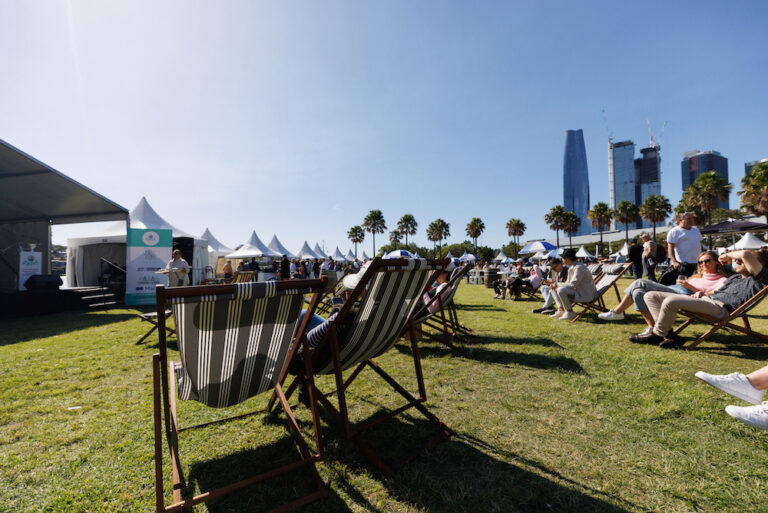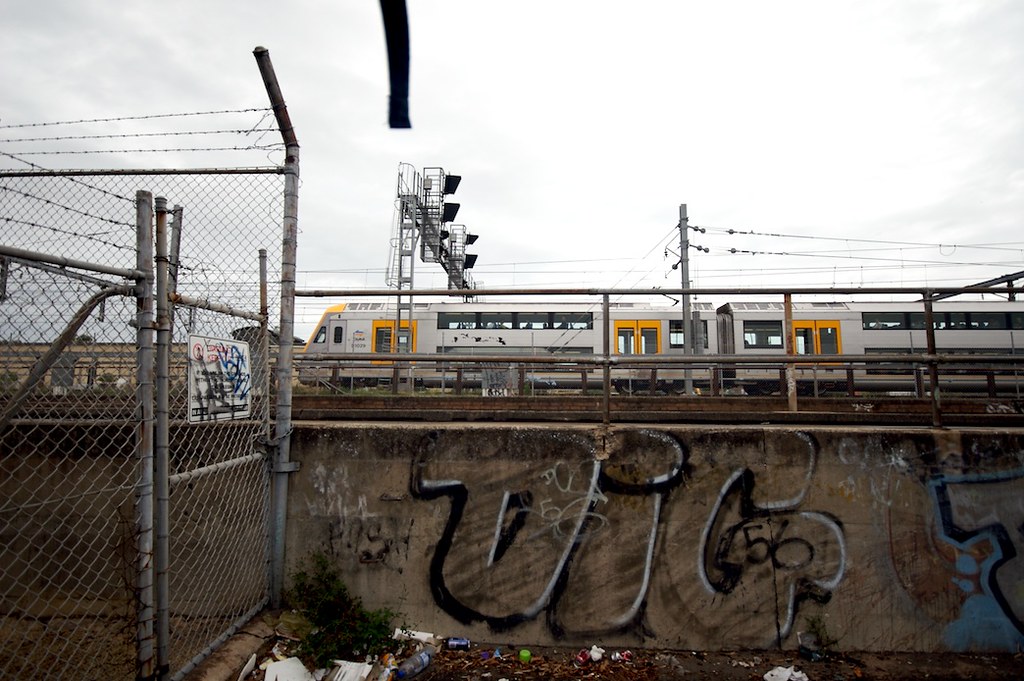By DANIEL LO SURDO
Inner West Councillors unanimously supported a motion requesting the Australian Rail Track Corporation (ARTC) to investigate noise concerns from Marrickville residents living by the goods rail corridor.
Councillor Julie Passas, who seconded the motion tabled from Marrickville Ward Councillor Victor Marci, offered little hope for the request, despite her support for the proposal.
“I was brought up on Parramatta Road and we could hear the trains at Summer Hill Station, and you get used to it – you pay accordingly when you buy near these types of places,” Ms Passas said at Council’s meeting last Tuesday.
“I don’t have a problem with Council writing but I can’t see it happening.”
Mr Macri believed the matter required urgent attention.
“It could be as simple as a bit of speed limiting in heavy residential areas and it could be something … that could be actually transferred right across our LGA and could be a real benefit, so that’s why we need them to have a real look at it,” Mr Macri said. “It’s only where it’s really close to residents, and with that metro, it’s right there, virtually just out the door.
“I think it’s an important advocacy role that we do have and should be representing these concerns to the ARTC.”
Deep Impact
Mr Macri was contacted by a resident who had recently moved into a home by the Marrickville train corridor and who has suffered from the goods line rail noise.
“We were quite excited to move into our beautiful new home however; the offensive noise levels of the squealing brakes of the goods trains 24 hours a day has ruined both our experience of living in the Inner West and our lives in general,” the resident said.
“The stress levels triggered by the outrageous noise of the squealing brakes of the Goods Trains as they speed past our house 24 hours a day is causing the whole family to suffer. I am frequently awoken at night and am starting to find it difficult to concentrate on and carry out my job to the best of my ability.”
The resident noted that noise is significantly less obtrusive when Metro line works are undergoing, as goods trains travel at a slower speed and squealing noises from the brakes are minimised. Residents also indicated little issue with Pacific National railway engines, described as “slower, more modern and don’t make nearly as much offensive noise as the silver Independent Rail Companies”.
Councillor Colin Hesse, who lives in close proximity to the railway corridor, believes noise pollution has been extraordinary in the area for the past century.
“I understand why new residents would be upset, obviously you buy a house during the day and you don’t hear what’s there at night … I do understand that it’s quite a shock,” Mr Hesse said.
“I can assure you that [railway noise] is quite distracting, you do somewhat get used to it but when you’re rolling over in the middle of the night it’s always annoying.
“Airport noise is the one that affects us the most, followed by road noise and then rail noise.”
A Federal Matter
Whilst supporting the motion, Mr Hesse shared Ms Passas’ sentiment on the outcome of Council’s request.
“The problem we have here ultimately is the State Government will say … it would cost too much, and I think that’s the issue with the cost in ameliorating all these things. The railway line there takes quite a jump to the left or right depending on which way you’re going, so it is one of those things where you’re going to get a lot of friction.
“I agree it would be better if it’s slower but … it’s going to be noisy regardless.”
Mr Macri refuted Mr Hesse’s argument, reframing the motion as a Federal issue.
“It’s not a matter of cost, it’s a procedural thing,” Mr Macri said.
“There’s no issue with the passenger trains, it’s actually the goods trains that are coming through at basically 3 o’clock in the morning.
“The Freight Rail System is a federal thing so that’s why we’ll be writing to the Federal, not the State Government, so I’m hoping we do get something for the residents and show that we do care enough to write a letter on their behalf.”
The resident contacting Mr Macri called for Council to issue a prevention notice, under the NSW Protection of the Environment Operations Act 1997, to lower the disturbance for Inner West residents across the railway corridor. The resident also requested the ARTC impose a speed limit and reduce the hours that goods trains are permitted to travel through the corridor immediately.
Whilst the resident argued that the noise emitted from the goods line trains during nighttime was consistent with the Protection of the Environment Operations Act’s definition of “offensive noise”, railway activities, including the goods line trains, are considered scheduled activities that are licenced and regulated exclusively by the Environmental Protection Authority, who assesses air, noise, water and waste environmental impacts.
After about eight minutes of discussion, all 15 councillors voted in favour of the motion, marking an unanimous decision. Council will now write to the ARTC, and in the event of residents’ concerns being proven, will request that treatments are implemented to reduce the impact of residents. They will also communicate with the relevant Federal members seeking assistance for the residents to inform them of the noise pollution from the freight line in the early hours of the morning along the rail corridor through Marrickille South, and especially residents in Meeks Road.


